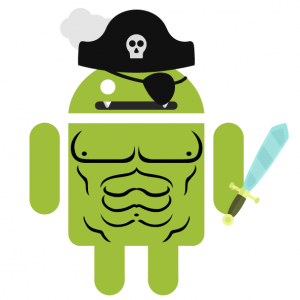
Recently, an article ran in the MIT Technology Review blog, in which Skyhook Wireless CEO Ted Morgan said "a lot of companies" are forking Android; that "nobody wants to just be a manufacturer for Google," and that a major non-Google Android device is coming out later this year.
The headline claimed Android manufacturers are "mutinying."
Skyhook Wireless is known for developing a software-only location system based on Wi-Fi positioning, GPS and cell tower triangulation. The article is somewhat vague, but says:
"[Unnamed manufacturers] are tired of making commodity devices that are merely vehicles for Google's Android OS, each indistinguishable from the other because of Google's rules about how Android can be implemented…The only thing keeping them tied to Google has been, up to now, the desire to be part of the official lineup of Android devices."
Morgan's statements warrant a closer look. Because frankly, who the heck is he talking about? Most of Skyhook's partnerships are with software companies, not device makers.
First, have a look at Google's "Official lineup of Android devices" here.
Under the heading "All Countries," we see that Google's list of Android devices includes products from literally every manufacturer in the Open Handset Alliance.
The only member missing is navigation company Garmin, who utilized Android for its Nuvifone G60 three years ago and then switched over to making their PNDs communicate with Android smartphones via software applications.
A few of the noteworthy Android devices absent from both the OHA and this official list of Android devices include: Amazon's Kindle Fire, Barnes and Noble's Nook family, tablets from top TV maker Vizio, all tablets/media players from Archos, devices from Sony (not the former joint venture with Ericsson), and Polaroid's Android-powered camera, to name just a scant few.
The article gets hung up on Amazon and how the Kindle Fire tweaked Android to such a degree that Google is scarcely anywhere to be found... but Skyhook has a couple of public affiliations with prominent hardware companies that would make a lot of sense if filled into the blanks of Morgan's statements.
Sony
I pointed out that Sony is missing from the list of sponsored Android devices. Only Sony Ericsson's smartphones are "official" Android devices, but the Sony Tablets that run on Android are not on the list.
Skyhook's location platform powers the "Near" social networking application on the PlayStation Vita, this solution tells what games nearby users are playing. Now that Sony has bought Ericsson out of its joint venture, it could conceivably release the next Xperia handset as its own forked Android with content only from the Playstation store, which sells music, movies, and games/apps, similar to Amazon and Google. Last month, Sony gave the Xperia S handset access to the PlayStation Store to do just that.
Intel
It seems like a lot of people have already forgotten that Intel has its own Android fork that runs on x86-based processors, and really, that is one of the most "major" companies in the tech world. What's more, Intel was forming a positive relationship with Skyhook, while Skyhook was engaged in a lawsuit with Google for business interference and patent infringement when its Wi-Fi/GPS location system was dropped from the Motorola Droid X.
Skyhook partnered with Intel at the beginning of 2011 to provide for software navigation systems for AppUp before Intel acquired Telmap.
We contacted Skyhook Wireless on Friday, but because it is a holiday weekend, Morgan wasn't available to speak with us to clarify if this "big new device" was coming from an existing partnership or a new one, and if the "lots of companies" that he mentioned were OHA members or not, which would really identify if this is a mutiny, or just an increase in Android competition.

